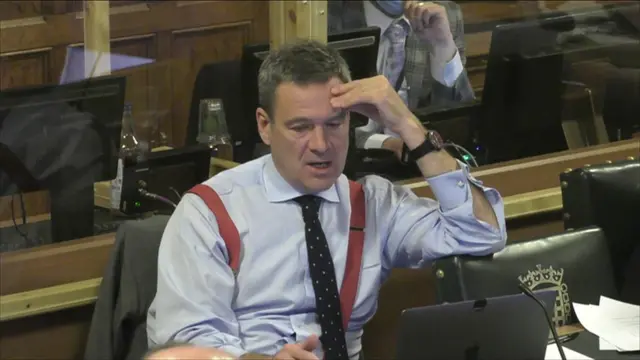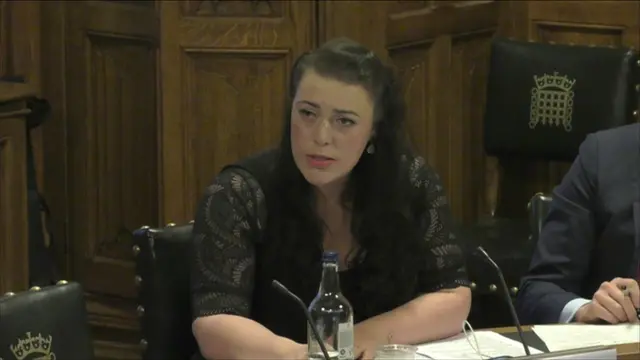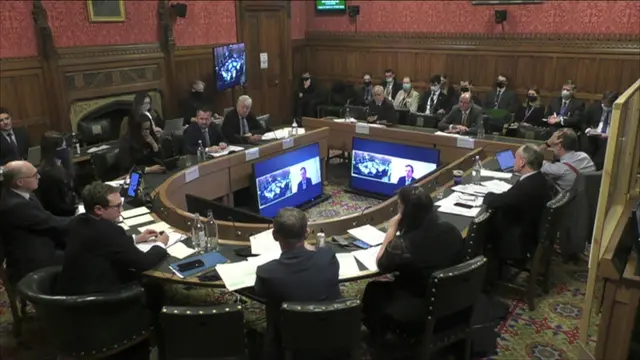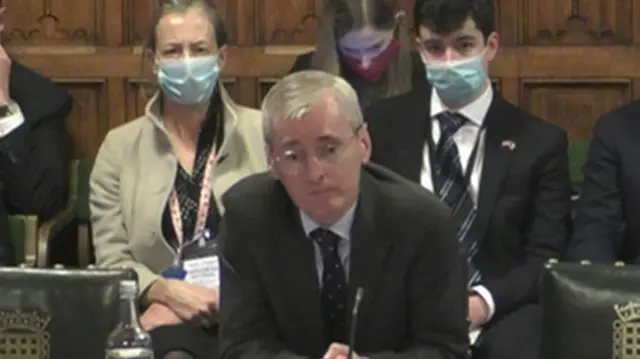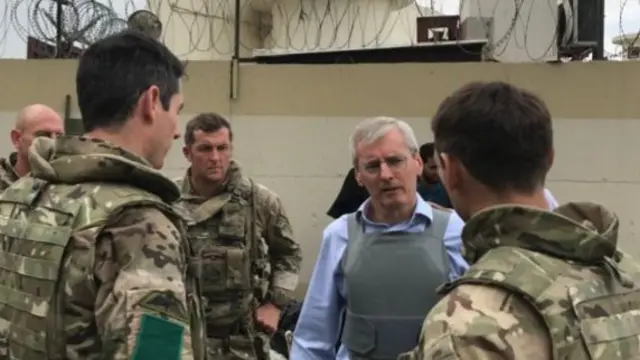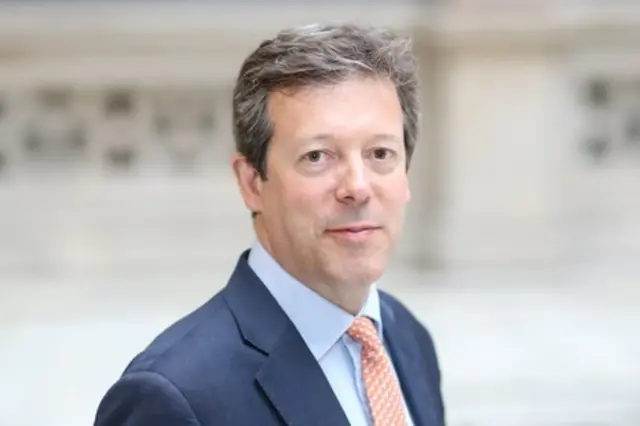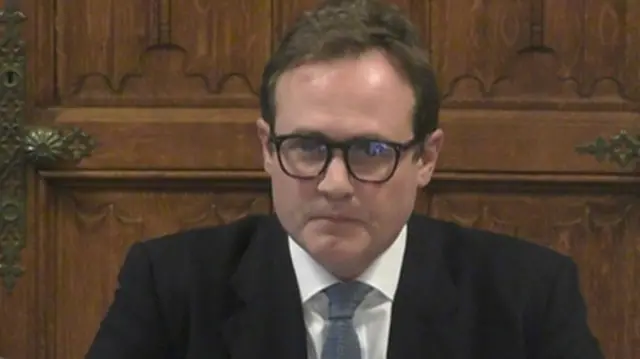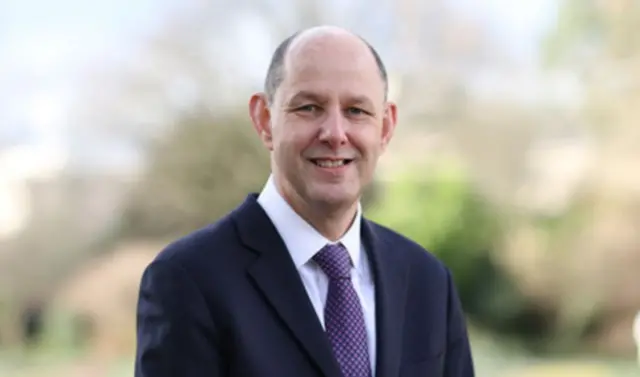No decision to evacuate animals before people - civil servantpublished at 16:23 GMT 7 December 2021
Conservative MP Royston Smith asks who authorised the prioritisation of animals over people when it came to evacuation.
There was no decision to evacuate animals over people, replies Sir Philip Barton.
How did animals get through then, asks the MP.
Nigel Casey says the flight was chartered by the animal charity Nowzad, run by former soldier Pen Farthing, and adds that it only left after the UK had finished evacuating people.
"It was only UK military who were left," he says.
Whistleblower Raphael Marshall has said soldiers were put in danger to help Nowzad, after Prime Minister Boris Johnson stepped in to ensure the charity's animals and workers were a priority.
Mr Johnson has denied intervening, saying: "No, that's complete nonsense."
Animal rights campaigner Dominic Dyer insisted the prime minister was involved, telling the BBC he had contacted the PM's wife, Carrie Johnson, to lobby on the issue - saying she would have given him a "hard time about it" - and that he had "forced the prime minister's arm".
